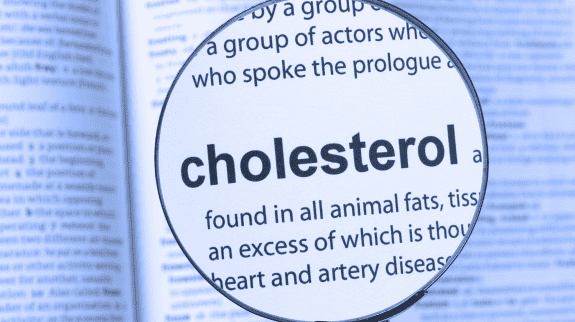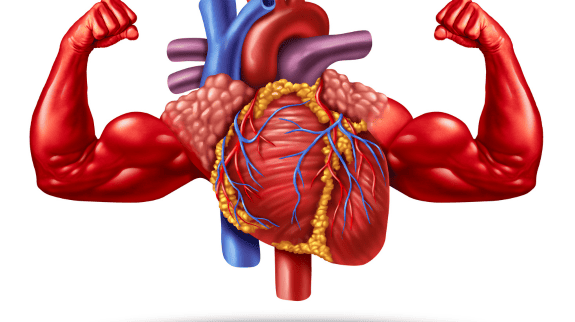The carnivore diet, which is based on animal foods and excludes most or all plant foods, has gained popularity in recent years. However, concerns have been raised about the impact of this diet on cholesterol levels.
Some experts suggest that a high intake of saturated fat from animal sources may increase LDL cholesterol levels, which is a risk factor for cardiovascular disease. However, proponents of the carnivore diet argue that dietary cholesterol does not have a significant impact on blood cholesterol levels and that the body can regulate its cholesterol production based on dietary intake.
KEY TAKEAWAYS
- Some experts suggest that a high intake of saturated fat from animal sources may increase LDL cholesterol levels, which is a risk factor for cardiovascular disease.
- Its high content of saturated fat and cholesterol may increase the risk of NAFLD.
- Proponents of the carnivore diet argue that dietary cholesterol does not have a significant impact on blood cholesterol levels and that the body can regulate its cholesterol production based on dietary intake.
The Carnivore Diet and Cholesterol

Cholesterol is a waxy substance that is produced by the liver and is essential for the production of hormones, vitamin D, and other substances. However, high levels of cholesterol in the blood can increase the risk of heart disease.
LDL (low-density lipoprotein) cholesterol is often referred to as “bad” cholesterol because it can build up in the walls of arteries, leading to atherosclerosis, a condition in which the arteries become narrow and hardened. HDL (high-density lipoprotein) cholesterol, on the other hand, is often referred to as “good” cholesterol because it helps remove LDL cholesterol from the bloodstream.
Studies have shown that the carnivore diet can lead to an increase in LDL cholesterol levels. For example, a study of 18 adults who followed the carnivore diet for six months found that their LDL cholesterol levels increased by an average of 44 mg/dL. Another study of 10 adults who followed the carnivore diet for one year found that their LDL cholesterol levels increased by an average of 37 mg/dL.
However, it should be noted that not all studies have found an increase in LDL cholesterol levels with the carnivore diet. For example, a study of 20 adults who followed the carnivore diet for six months found no significant change in LDL cholesterol levels.
It is important to note that blood cholesterol levels are influenced by a variety of factors, including genetics, age, sex, and lifestyle factors such as diet and exercise. Therefore, it is possible that the impact of the carnivore diet on cholesterol levels may vary among individuals.
Carnivore Diet and Fatty Liver

Non-alcoholic fatty liver disease (NAFLD) is a condition characterized by the accumulation of fat in the liver, which can lead to inflammation and damage. The prevalence of NAFLD has been increasing worldwide and has been linked to various factors, including diet.
One of the main concerns with the carnivore diet is its high content of saturated fat and cholesterol, which have been linked to an increased risk of NAFLD. A study published in the journal Frontiers in Nutrition found that a diet characterized by red meat intake may not increase the risk of NAFLD, but high red and processed meat consumption is associated with NAFLD and insulin resistance.
Moreover, a study published in the journal Hepatology found that diets low in meat and cholesterol and high in fiber may reduce the risk for NAFLD and related advanced liver disease. Therefore, it is important to consider the quality and quantity of the meat consumed on a carnivore diet to minimize the risk of NAFLD.
In summary, the carnivore diet may have potential benefits, but its high content of saturated fat and cholesterol may increase the risk of NAFLD. It is important to consume high-quality meat in moderation and to include fiber-rich foods in the diet to reduce the risk of NAFLD.
Impact on Cardiovascular Disease

Cardiovascular disease, which includes heart disease and stroke, is the leading cause of death worldwide. High levels of cholesterol, particularly LDL cholesterol, are a major risk factor for cardiovascular disease.
While there is some evidence to suggest that the carnivore diet may increase the risk of cardiovascular disease, more research is needed to fully understand its impact. Individuals considering the carnivore diet should speak with a healthcare provider to discuss potential risks and benefits.
One study published in the American Journal of Clinical Nutrition found that consuming plant-based alternative meat instead of animal meat can lower LDL cholesterol and reduce the risk of cardiovascular disease. Another study found that diets high in cheese and meat can increase levels of apo AI and HDL cholesterol, which are considered to be cardioprotective.
However, a meta-analysis of randomized controlled trials found that consuming up to 0.5 servings of total red meat per day does not negatively impact cardiovascular disease risk factors, including blood total cholesterol and LDL cholesterol.
Dietary Cholesterol vs. Blood Cholesterol
Cholesterol is a type of fat that is found in animal products, including meat, fish, and eggs. It is also produced by the liver. Cholesterol is essential for the body to function properly, but too much cholesterol can be harmful to health.
There are two types of cholesterol: dietary cholesterol and blood cholesterol. Dietary cholesterol is the cholesterol that is found in food, while blood cholesterol is the cholesterol that is circulating in the blood.
Research has shown that dietary cholesterol has a relatively small effect on blood cholesterol levels in most people. However, some people are more sensitive to dietary cholesterol than others. For these people, consuming a diet high in cholesterol may lead to an increase in blood cholesterol levels.
The American Heart Association recommends that people limit their intake of dietary cholesterol to less than 300 milligrams per day. This is because high blood cholesterol levels are a risk factor for heart disease.
It is important to note that not all sources of dietary cholesterol are created equal. For example, some studies have suggested that consuming red meat may be more harmful to health than consuming other sources of protein, such as fish or poultry. Either way based on current studies the Carnivore diet, doesn’t seem to have a negative effect on blood cholesterol.
Fatty Acids
The consumption of animal products and the fatty acid composition of the meats consumed on the carnivore diet can have an impact on cholesterol levels and heart health. While animal products are generally higher in saturated fatty acids, there are also options that are higher in beneficial polyunsaturated fatty acids.
Meats can contain different types of fatty acids, including saturated, monounsaturated, and polyunsaturated fatty acids. Saturated fatty acids are typically solid at room temperature and are often associated with an increased risk of heart disease. Monounsaturated and polyunsaturated fatty acids, on the other hand, are typically liquid at room temperature and are associated with a decreased risk of heart disease.
In general, animal products are higher in saturated fatty acids compared to plant-based foods. However, the fatty acid composition of different animal products can vary. For example, beef is typically higher in saturated fatty acids compared to chicken or fish. Additionally, some animal products, such as fatty fish, can be high in polyunsaturated fatty acids, which are considered to be beneficial for heart health.
Fatty acid composition of animal products can also be influenced by the animal’s diet. For example, grass-fed beef is typically higher in polyunsaturated fatty acids compared to grain-fed beef. So choose good quality meats, when following this diet.
Carnivore Diet and Weight Loss

One of the primary claims of the carnivore diet is that it can lead to weight loss. This is because the diet is very low in carbohydrates, which can lead to a reduction in insulin levels and an increase in fat burning. Additionally, the high protein content of the diet can help to increase feelings of fullness and reduce overall calorie intake.
However, the evidence supporting these claims is limited. While some studies have shown that low-carbohydrate diets can lead to weight loss, there is no clear evidence that a carnivore diet is superior to other low-carbohydrate diets. Additionally, some studies have suggested that the high intake of saturated fat in the carnivore diet can lead to weight gain and other health problems.
While the carnivore diet may lead to weight loss in some individuals, it is not a sustainable or healthy long-term solution for most people.
Comparison with Other Diets
Compared to other diets, the carnivore diet is extremely low in carbohydrates, fiber, and plant-based foods. In contrast, plant-based diets are high in fiber, vitamins, and minerals, and have been shown to reduce the risk of chronic diseases such as heart disease, diabetes, and certain types of cancer.
Low-carb diets, such as the Atkins diet, are also high in animal products but allow for some plant-based foods. These diets have been shown to lead to weight loss and improved blood sugar control, but they can also lead to high cholesterol levels if not followed correctly.
High-carb diets, such as the standard American diet, are high in processed foods, refined carbohydrates, and sugars. These diets have been linked to obesity, diabetes, and heart disease.
The ketogenic diet is another low-carb diet that has gained popularity in recent years. This diet involves consuming high amounts of healthy fats, moderate amounts of protein, and very low amounts of carbohydrates. While the ketogenic diet has been shown to lead to weight loss and improved blood sugar control, it can also lead to high cholesterol levels if not followed correctly.
Also read: ATKINS VS OTHER HIGH PROTEIN DIETS
The Carnivore Diet and Blood Pressure
The carnivore diet is a dietary approach that involves consuming only animal products, such as meat, fish, eggs, and dairy. While some proponents of the carnivore diet claim that it can improve blood pressure, there is limited scientific evidence to support this claim.
One study found that a high-protein, low-carbohydrate diet that included animal products was associated with a decrease in blood pressure in overweight and obese individuals. However, this study did not specifically examine the effects of the carnivore diet.
Another study found that a high-protein diet that included meat was associated with an increase in blood pressure in individuals with prehypertension. Prehypertension is a condition in which blood pressure is higher than normal but not high enough to be diagnosed as hypertension.
While the relationship between the carnivore diet and blood pressure is not well understood, some experts have expressed concern that the high intake of saturated fat in the carnivore diet may increase the risk of high blood pressure and other cardiovascular diseases.
It is important to note that high blood pressure is a complex condition that can be influenced by a variety of factors, including diet, lifestyle, and genetics. Individuals who are concerned about their blood pressure should consult with a healthcare professional to determine the best course of action.
Impact on Mental Health

The carnivore diet is a high-fat, high-protein diet that restricts the consumption of plant-based foods. While some proponents of the carnivore diet claim that it can improve mental health, there is little scientific evidence to support this claim.
In fact, some research suggests that a high-fat, high-protein diet may have a detrimental impact on mental health. For example, a systematic review of randomized controlled trials found that diets high in cholesterol may increase the risk of depression and anxiety [1]. Similarly, a study of university students found that a diet high in saturated fat and cholesterol was associated with poorer mental health outcomes [2].
It is important to note that depression is a complex condition with many contributing factors, and there is no one-size-fits-all solution. While some people may find that the carnivore diet improves their mental health, others may not experience any benefits or may even experience negative effects.
Overall, more research is needed to fully understand the impact of the carnivore diet on mental health. In the meantime, individuals who are considering the carnivore diet should speak with a healthcare professional to determine if it is a safe and appropriate dietary choice for them.
[2] https://onlinelibrary.wiley.com/doi/abs/10.1002/hpm.2881
The Carnivore Diet and Cholesterol Levels During Pregnancy

The carnivore diet is a type of diet that emphasizes the consumption of animal products while excluding all plant-based foods. While some people have reported benefits from this diet, such as weight loss and improved energy levels, it is important to consider the potential risks and drawbacks of following such a restrictive diet, especially during pregnancy.
Pregnancy is a time when a woman’s body requires a variety of nutrients to support the growth and development of the fetus. While animal products can provide many of these nutrients, such as protein, iron, and vitamin B12, they may also be high in cholesterol and saturated fat, which can increase the risk of heart disease and other health problems.
Research has shown that high cholesterol levels during pregnancy can increase the risk of complications, such as preeclampsia and gestational diabetes. Therefore, it is important for pregnant women to maintain healthy cholesterol levels by consuming a balanced diet that includes a variety of nutrient-dense foods.
While the carnivore diet may provide some of the necessary nutrients for a healthy pregnancy, it may not provide enough of others, such as fiber and certain vitamins and minerals found in plant-based foods. Additionally, the high cholesterol and saturated fat content of the diet may increase the risk of complications during pregnancy.
Therefore, it is recommended that pregnant women avoid following a restrictive diet like the carnivore diet and instead focus on consuming a balanced diet that includes a variety of nutrient-dense foods from all food groups. This can help ensure that both the mother and the developing fetus receive all the necessary nutrients for a healthy pregnancy.
Conclusion
In considering concerns related to elevated LDL cholesterol while following a carnivore diet, the crucial determinants rest on individual circumstances, inherent genetic traits, and overall well-being. To ensure optimal cardiovascular health, it is imperative to consistently monitor cholesterol levels and collaborate closely with healthcare professionals for personalized assessment and dietary recommendations.
Moreover, adopting a heart-healthy lifestyle transcends dietary choices, encompassing the incorporation of regular physical activity, effective stress management, and attention to other lifestyle aspects that promote cardiovascular well-being. By holistically addressing these factors, informed decisions can be made to optimize one’s overall health and well-being.
Frequently Asked Questions
Can the carnivore diet lead to high cholesterol?
The carnivore diet is a high-fat, high-protein diet that involves consuming mainly meat and animal products. Some studies have suggested that this type of diet may lead to an increase in cholesterol levels in some individuals. However, not all individuals experience this effect, and more research is needed to determine the long-term impact of the carnivore diet on cholesterol levels.
What is the relationship between the carnivore diet and heart disease?
The relationship between the carnivore diet and heart disease is not yet fully understood. Some studies have suggested that a high intake of saturated fat, which is common in the carnivore diet, may increase the risk of heart disease. However, other studies have found no significant association between saturated fat intake and heart disease risk. More research is needed to determine the impact of the carnivore diet on heart disease risk.
How does the carnivore diet affect lipid panel results?
The carnivore diet may affect lipid panel results by increasing cholesterol levels, particularly LDL cholesterol. Some individuals may experience an increase in triglycerides as well. However, it is important to note that not all individuals experience these effects, and more research is needed to determine the long-term impact of the carnivore diet on lipid panel results.
Can statins be used in conjunction with the carnivore diet?
Statins are a type of medication used to lower cholesterol levels. While statins may be effective in lowering cholesterol levels, they may also have side effects and should be used under the guidance of a healthcare provider. It is important to discuss the use of statins with a healthcare provider before starting the carnivore diet.
What is the impact of the carnivore diet on apolipoprotein B?
Apolipoprotein B is a protein that is found in LDL cholesterol. Some studies have suggested that the carnivore diet may increase levels of apolipoprotein B, which may increase the risk of heart disease. However, more research is needed to determine the impact of the carnivore diet on apolipoprotein B levels.
Is it possible to follow a carnivore diet and maintain healthy blood sugar levels?
The carnivore diet is a low-carbohydrate diet that may help some individuals maintain healthy blood sugar levels. However, it is important to note that the carnivore diet may not be appropriate for individuals with certain medical conditions, such as diabetes. It is important to discuss the use of the carnivore diet with a healthcare provider before starting this diet.
Can carnivore diet lower cholesterol?
The carnivore diet may lower cholesterol levels in some individuals. However, not all individuals experience this effect, and more research is needed to determine the long-term impact of the carnivore diet on cholesterol levels. It is important to discuss the use of the carnivore diet with a healthcare provider before starting this diet.

